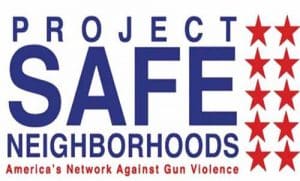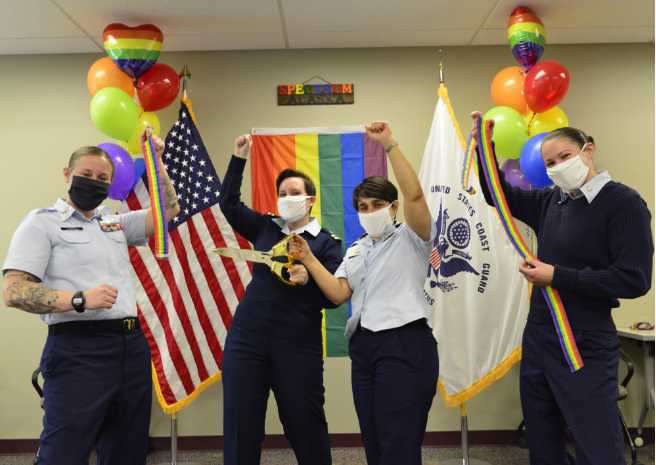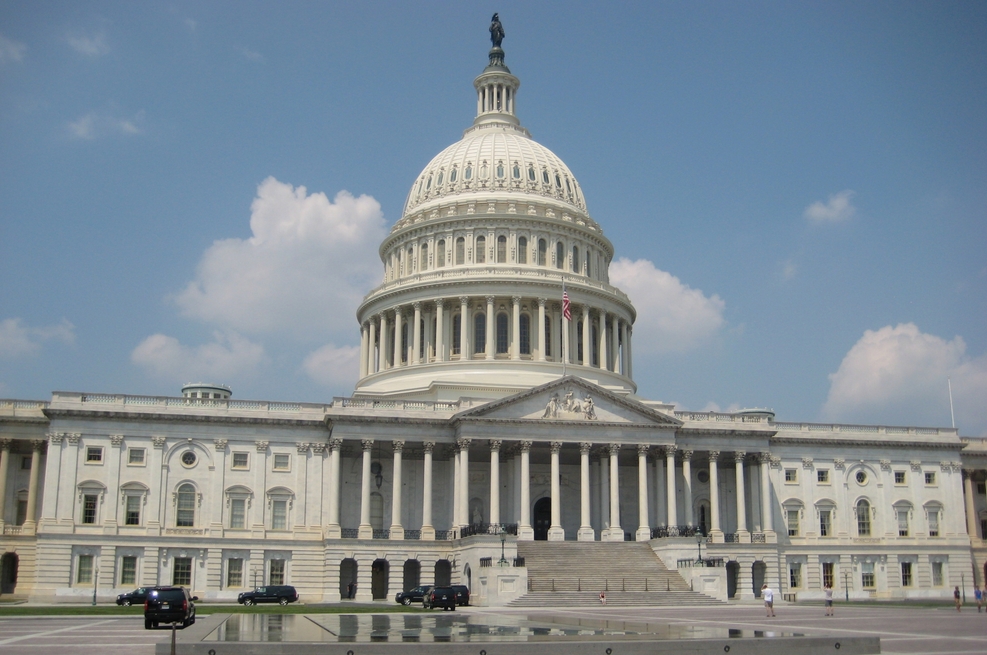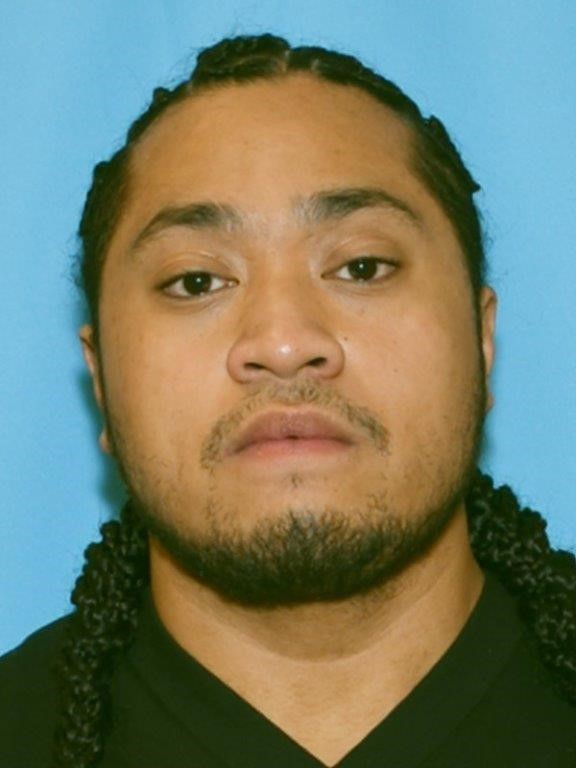 One year ago, the Department of Justice announced the revitalization and enhancement of Project Safe Neighborhoods (PSN), which Attorney General Sessions has made the centerpiece of the Department’s violent crime reduction strategy. PSN is an evidence-based program proven to be effective at reducing violent crime. Through PSN, a broad spectrum of stakeholders work together to identify the most pressing violent crime problems in the community and develop comprehensive solutions to address them. As part of this strategy, PSN focuses enforcement efforts on the most violent offenders and partners with locally based prevention and reentry programs for lasting reductions in crime.
One year ago, the Department of Justice announced the revitalization and enhancement of Project Safe Neighborhoods (PSN), which Attorney General Sessions has made the centerpiece of the Department’s violent crime reduction strategy. PSN is an evidence-based program proven to be effective at reducing violent crime. Through PSN, a broad spectrum of stakeholders work together to identify the most pressing violent crime problems in the community and develop comprehensive solutions to address them. As part of this strategy, PSN focuses enforcement efforts on the most violent offenders and partners with locally based prevention and reentry programs for lasting reductions in crime.
Throughout the past year, the U.S. Attorney’s Office has partnered with all levels of law enforcement, local organizations, and members of the community to reduce violent crime and make our neighborhoods safer for everyone.
“Project Safe Neighborhoods is a proven program with demonstrated results,” Attorney General Jeff Sessions said. “We know that the most effective strategy to reduce violent crime is based on sound policing policies that have proven effective over many years, which includes being targeted and responsive to community needs. I have empowered our United States Attorneys to focus enforcement efforts against the most violent criminals in their districts, and directed that they work together with federal, state, local, and tribal law enforcement and community partners to develop tailored solutions to the unique violent crime problems they face. Each United States Attorney has prioritized the PSN program, and I am confident that it will continue to reduce crime, save lives, and restore safety to our communities.”
[content id=”79272″]
“In Alaska, law enforcement agencies have a long history and tradition of working together to protect the people of the state,” said U.S. Attorney Bryan Schroder. Under Project Safe Neighborhoods, we are leveraging that cooperation to identify the most serious violent crime problems and offenders, then focus our operations. I am also pleased that Project Safe Neighborhoods has provided us with additional needed resources, including two new prosecutors in the U.S. Attorney’s Office here in Alaska.”
As we celebrate the one-year anniversary of the revitalized PSN program, here are some of the highlights of our PSN actions over the past year:
Enforcement Actions
In October 2017, the U.S. Attorney’s Office announced its statewide Anti-Violent Crime Strategy, which brings together municipal, state, and federal law enforcement to combat the tide of rising crime in Alaska. Some representative cases include:
- U.S. v. Macauther Vaifanua et al. In September 2018, five Anchorage residents were indicted on federal kidnapping and drug trafficking charges, among other offenses, in connection with the August 2017 beating and placing of a victim into a dog kennel.
- U.S. v. Michael Sampo. In June 2018, Sampo was sentenced to serve 12 years in federal prison after being convicted of carjacking in Anchorage. At the time of the offense, Sampo was a four-time prior felon.
- U.S. v. Matthew Scharber. In July 2018, Scharber was sentenced in federal court to serve a life term in prison after being convicted of multiple charges related to the October 2016 kidnapping, carjacking, and shooting of two individuals. Scharber also received an additional 10 years in prison on the firearms offense.
- U.S. v. Twigg and Conangnan. This case charged the defendants with interfering with commerce by robbery of two coffee stands on Sept. 25, 2017, as well as using a firearm in furtherance of these crimes. Defendant Shane Twigg has seven prior felonies and had a pending assault case when the robberies occurred. Myles Conangnan has a prior felony for Burglary, as well as 16 other convictions, including six convictions from four separate cases in 2017 alone. Both defendants face mandatory minimum sentences of 32 years in federal prison if they are convicted.
Community Partnerships
The U.S. Attorney’s Office, together with its local, state, and federal partners, has continued to organize events at secondary schools all over Alaska to discuss the dangers of opioid abuse. This program, based on the DEA/FBI-produced documentary called “Chasing the Dragon,” will continue this year, as federal prosecutors, law enforcement officers, and medical professionals will join together to discuss their experience with the opioid epidemic.
- In the last year, six Anchorage area schools have hosted “Chasing the Dragon” presentations, reaching over 3,200 students; more school outreach is planned throughout the state in the coming year.
- The U.S. Attorney’s Office has participated in fait- based community events, such as the Alaska Churches of God in Christ (COGIC) Crime Reduction Town Hall Forum, and a “Chasing the Dragon” opioid education event.
- The U.S. Attorney’s Office partnered with Anchorage Opioid Task Force in building Naloxone kits for distribution throughout the state and participated in recovery month events.
Improvements to Community Safety
- The FBI’s official crime data for 2017 reflects that, after two consecutive, historic increases in violent crime, in the first year of the Trump Administration the nationwide violent crime rate began to decline. The nationwide violent crime rate decreased by approximately one percent in 2017, while the nationwide homicide rate decreased by nearly one and a half percent.
- The preliminary information we have for 2018 gives us reason for optimism that our efforts are continuing to pay off. Public data from 60 major cities show that violent crime was down by nearly five percent in those cities in the first six months of 2018 compared to the same period a year ago.
These enforcement actions and partnerships are part of Project Safe Neighborhoods (PSN), a program bringing together all levels of law enforcement and the communities they serve to reduce violent crime and make our neighborhoods safer for everyone. Attorney General Jeff Sessions reinvigorated PSN in 2017 as part of the Department’s renewed focus on targeting violent criminals, directing all U.S. Attorney’s Offices to work in partnership with federal, state, local, and tribal law enforcement and the local community to develop effective, locally based strategies to reduce violent crime.








